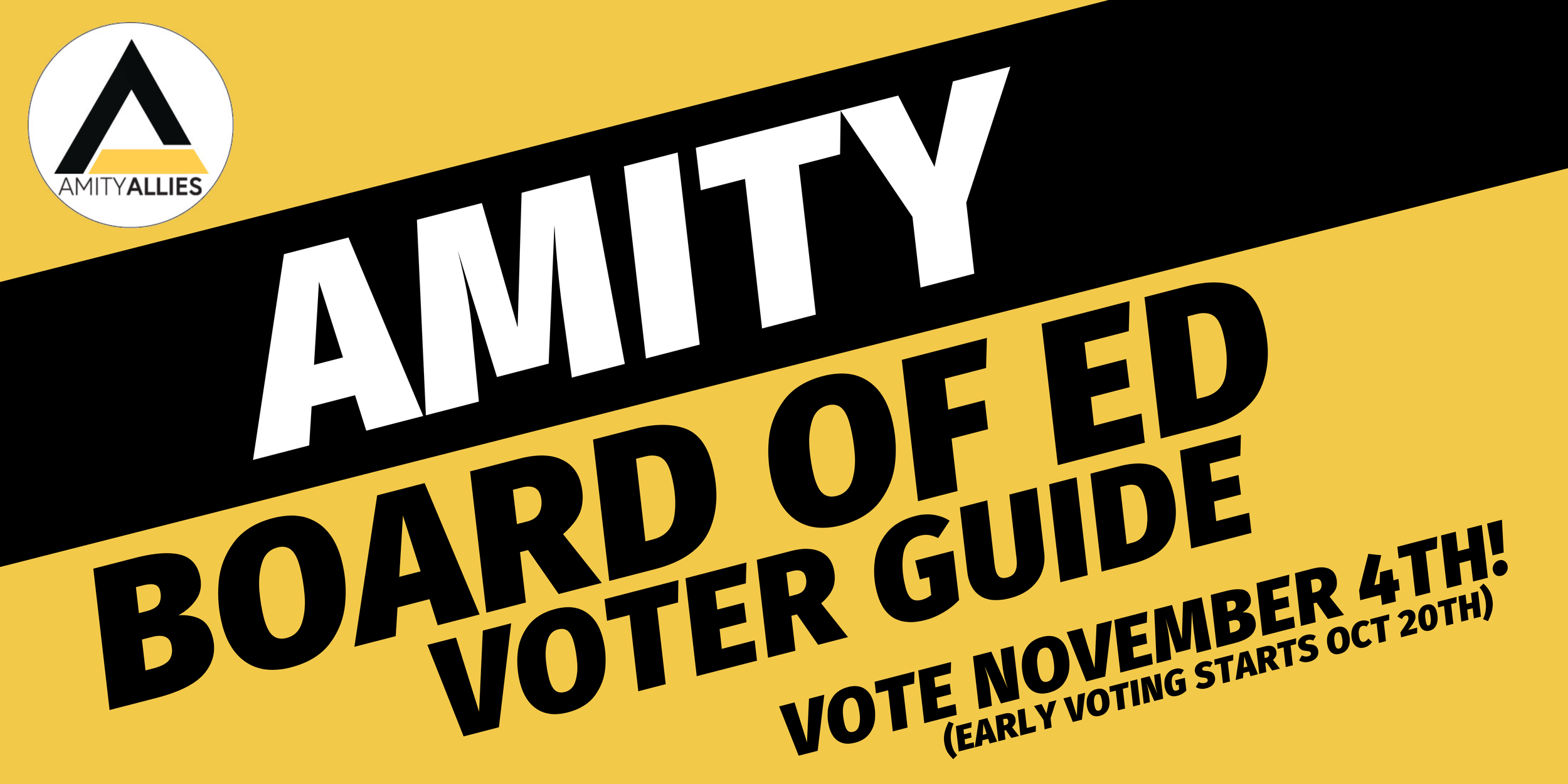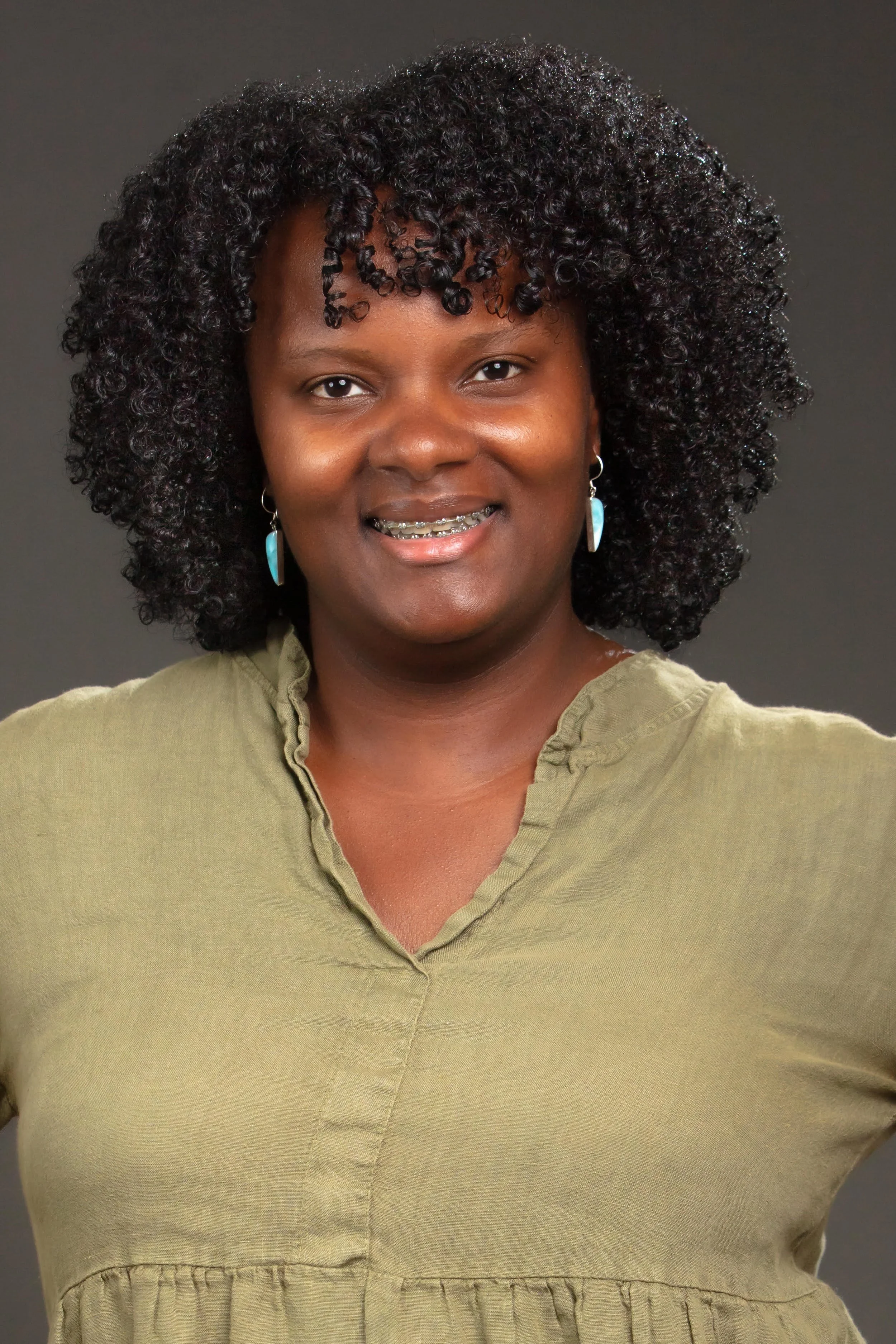Welcome to our Voter Guide!
In short, we invited all candidates for the Amity Board to answer questions relevant to what the Board does. Our goal is to help you, the voter, get to know them better so you can make an informed choice when you vote, whether through early voting (starting October 20th) or on Election Day, November 4th.
If you want the full low down on the voter guide and our process, you can click the banner above to learn more!
Once you’ve learned about this candidate, you can navigate to the next candidate’s page down at the bottom or just click a town seal to see all the candidates running in the town.
Autumn Cloud-Ingram (D) - Bethany
“At my core, I am deeply connected to supporting communities and creating meaningful change. As a Licensed Clinical Social Worker, I’ve spent many years working directly with children and families as a school social worker and in-home therapist. These experiences have given me unique insight into both the strengths and challenges that families and school districts face.
For the past 8+ years, I have served in school administrative roles, ensuring that students have what they need not only to succeed academically but also to feel well and supported in their learning environments. As a mother, I also understand firsthand how important it is for schools to nurture the whole child and partner with families.
After 10 years of living in Bethany, I am excited for the opportunity to bring both my clinical background and my commitment to educational equity to the Board of Education. I believe that every student deserves to thrive, and I look forward to partnering with our community to help make that possible.”
The questionnaire:
-
1. What qualifications would you bring as a member of the Amity Board of Education?
As both a parent in this district and a licensed clinical social worker with over a decade of experience in schools, I bring the perspective of someone who has sat alongside students, families, and educators navigating the opportunities and challenges of education. I’ve worked in public, private, and therapeutic schools, which has given me a wide lens on the different ways students learn and thrive.
My career has always centered on supporting the needs of children and families. In my current role as a Director in a school, I provide direct support to students, teach, and also carry out administrative duties. That dual perspective allows me to see the needs on both ends; what students and families experience day-to-day and how systems and policies affect them.
-
2. What would you hope to accomplish in the next term as a member of the Board?
I would focus on keeping Amity strong academically while also ensuring our students feel supported as whole people. That means maintaining rigorous coursework, supporting extracurricular opportunities, and paying attention to student well-being.
I want to help the Board and community keep student well-being at the center of decision-making. Too often, policies and practices are made without fully considering the developmental needs of students or the realities of families. I would also work to strengthen the communication and relationship between the Board, families, and staff, so all voices feel connected and heard.
-
3. Do you have any concerns about academics, curricula, or extra curricular opportunities (athletics, clubs, etc) at Amity?
Amity has a strong reputation academically and offers many opportunities, which is a strength.
My priority is making sure all students have access to opportunities offered whether it be in the arts, school events/activities, special education services, or athletics.
As a licensed mental health provider who has worked closely with adolescents, I’m especially interested in how the district supports mental health and health education alongside academics, so that students are prepared both academically and personally.
-
4. On what basis do you think the job performance of the Superintendent of Amity Schools should be evaluated?
I believe the Superintendent should be evaluated on student outcomes, fiscal responsibility, and community trust. But outcomes should mean more than test scores. For me, evaluation should include:
● Student well-being - Are our students healthy, safe, and supported?
● Student growth - Switching from a focus solely on test scores or graduation rates, but instead, on whether students are progressing and reaching their potential.
● Career readiness - Ensuring students are prepared for college, careers, or whatever path they choose after graduation.
● Fiscal responsibility - Making sure resources are used wisely and transparently.
-
5. What are the primary criteria you would bring to considering the administration’s annual budget proposals for the Amity district?
I would look at whether the budget keeps student needs at the center: Are we funding classrooms, teachers, and extracurriculars in ways that directly benefit students?
I would also weigh sustainability by asking if we can support these investments long term without creating instability for taxpayers?
And finally, equity; are resources being distributed fairly so that all students, regardless of background, can thrive?
-
6. How do you view the respective roles of the Board, Amity administration, the State of Connecticut, and the federal government in determining curriculum in the district?
Curriculum is shaped by state and federal guidelines, but it is the role of the administration and the Board to make sure it reflects our community’s values, prepares students for the future, and is taught in ways that engage and support them.
The Board’s role is oversight, not micromanagement, so that we ensure alignment with standards while also respecting the expertise of our educators.
-
7. How would you weigh your responsibility as an elected representative of your town and your duty to support the district as a member of its Board?
Both are important. As a representative, I have a duty to bring my town’s concerns to the table.
As a Board member, I have a responsibility to make decisions that serve all Amity students across the district. My approach would be to listen deeply, communicate openly with my town, and then make thoughtful decisions that balance local needs with the good of the entire district.
-
8. How would you approach making decisions at Amity that may affect parents who also have students at the elementary school(s) in your town, such as those regarding the Amity schools’ calendar or a later start time at the middle and high schools?
I would approach these decisions by listening carefully to all stakeholders; parents, teachers, and students across grade levels.
For example, with calendar or start time changes, it’s important to weigh the research on adolescent development with the practical realities for families who also have younger children.
My goal would be to seek solutions that support student well-being while minimizing hardship for families.
-
9. How would you make sure that everyone - including parents and students - feels welcome in the district, regardless of their political views (conservative, liberal, or moderate), faith, cultural background, race, or how they view themselves?
As both a parent and an educator, I believe students do their best when they feel seen and valued. That means creating an environment where every family feels like they belong, no matter their background or beliefs.
Part of this is teaching students and adults how to have discussions on sensitive subjects and how to manage disagreement in healthy ways. I also believe in balancing empathy with accountability when harm is done.
My background in restorative practices in schools would help me support the community in building understanding and repairing harm when needed.
Our community is strongest when we can disagree respectfully, learn from one another, and stay focused on our shared goal: helping our kids thrive.
Next Candidate
Lulefer Vinca
Lulefer Vinca
(click photo to read)






